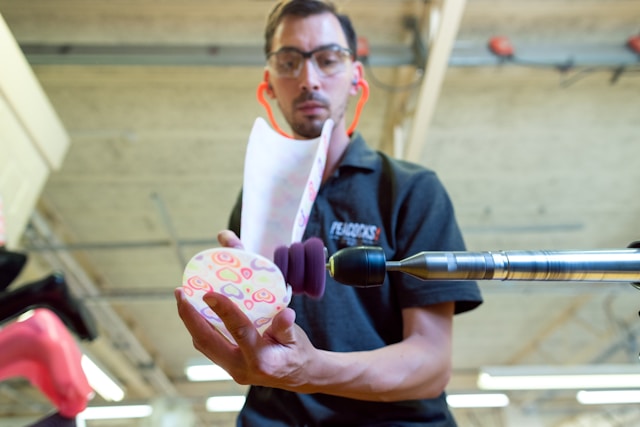Purchasing equipment requires significant upfront costs. It’s only sometimes a smart option, even if you have the cash to purchase a machine. Using ROI as an evaluation tool can help determine if the investment will be worth it.
Lower Initial Investment
You’ve researched, examined your current application mix, forecasted new applications, and gained a solid understanding of what pieces of finishing equipment would benefit your shop. You’ve even talked to local vendors and distributors to get an idea of the costs associated with bringing in the machinery you’re interested in.
However, it would help if you still considered other significant factors contributing to overall cost efficiency in the finishing department. One of the most important is the initial investment that goes into buying any piece of equipment.
Buying used equipment significantly lowers your initial investment while maintaining quality and performance. This is because when you buy a new piece of equipment, it experiences a steep depreciation curve immediately after leaving the showroom or factory floor. On the other hand, when you purchase used equipment at an industrial auction, that initial depreciation has already been accounted for, which results in lower upfront expenses. Purchasing used finishing equipment Milwaukee WI, from a reputable shop offers cost-effective solutions without compromising quality, enabling businesses to enhance productivity while staying within budget constraints. Additionally, reputable shops often provide thorough inspections and reliable customer support, ensuring peace of mind and confidence in the performance and longevity of the equipment.
Less Depreciation
When you buy used equipment, the initial cost is significantly less. You can also avoid depreciation costs, which can be costly for your business. For example, purchasing a new excavator can save you hundreds of thousands of dollars. However, opting for a well-maintained used excavator can save you considerable money.
New machinery begins to depreciate when it leaves the dealer’s lot. It can be normal to see double-digit depreciation within the first year of ownership. This steep depreciation curve can be a significant financial drain on your business’s budget. Buying used equipment means the initial depreciation has already occurred and will only decline slowly. This can help to safeguard your profits and reduce your operating costs. You’ll also be able to conserve capital and invest it in other aspects of your business, such as additional machinery or new hires. It’s also an eco-conscious choice since the production and transportation of new equipment create substantial carbon emissions.
Faster Return on Investment
Most smart businesses focus on optimizing ROI and ensuring that equipment investments pay for themselves. Whether it’s large, high-speed machines that cut and fold thousands of direct mail pieces per hour or smaller tabletop laminators, an adequate ROI is key to maximizing efficiency.
The good news is that it’s possible to make a much faster return on your investment by buying used rather than new. This is especially true when working with a one-stop shop that can handle everything from equipment locating to financing and installation.
Let’s say you want to purchase a new powder coating machine for your shop. The initial price will be $200,000, and you want to ensure the machine pays for itself within five years. To calculate this, divide the equipment cost by the profit it will create over the same period. The higher the ratio, the quicker the return on your investment.
Less Risk
Many business owners shy away from buying used equipment because they believe the risks may outweigh the benefits. However, with little research on the buyer’s part, most of the risks associated with buying used can be avoided. For example, when purchasing capital finishing equipment, the seller should be able to provide a list of all previous customers and unbiased reviews on Google or Facebook. Additionally, suppose the equipment is being purchased from a publicly traded company. In that case, it should be possible to get financial information to evaluate its stability and likelihood of a positive return on investment.
Whether your business is looking to trade in old equipment, consolidate financing fees, enter or expand into new markets, or save money, buying used equipment can be the smartest choice. With lower initial costs and less depreciation, the ROI of investing in used finishing equipment will be much faster than if you choose to purchase new.
